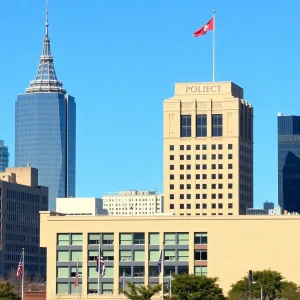Moore’s Execution Marks the Second in South Carolina in Three Months
For the second time in three months, an execution has been carried out in South Carolina. Richard Benard Moore, 59, was declared dead by lethal injection at the Broad River Correctional Facility in Columbia on Friday evening, marking an end to his over 20-year stint on death row.
Moore’s Crime and Conviction
Moore was convicted and sentenced to death for the shooting death of James Mahoney on Sept. 16, 1999, at Nikki’s Speed Mart in Spartanburg. His trial, carried out by an all-white jury, concluded on Oct. 20, 2001. Moore’s journey through the criminal justice and court system deeply underscores the serious consequences of violent actions.
Last Moments
Before his execution, Moore shared a final statement— one that his attorney, Lindsey Vann, read aloud. In it, Moore expressed deep remorse for his actions, “To the family of Mr. James Mahoney, I am deeply sorry for the pain and sorrow I caused you all,” Moore wrote. “To my children and granddaughters, I love you and I am so proud of you. Thank you for the joy you have brought to my life.” Moore’s final moments were filled with gratitude for his family and supporters who were there for him during the tumultuous period of his life.
The Execution Process
At 6:01 p.m., Moore’s execution began, just moments after Gov. Henry McMaster denied Moore’s clemency. No South Carolina governor has granted executive clemency since the state resumed executions in 1976. Initial capital punishment took the form of a lethal dose of pentobarbital, administered through a needle connected to Moore’s arm. Within a short time, Moore had taken his last breath, and by 6:24 p.m., he was declared dead.
Community Reactions
Outside of the prison, debates were ongoing as protestors raised signs against capital punishment. One protestor, Vern Garcia, remarked, “I’ve got to fight just as hard for those unborn children as I do for someone who may have done something bad in their life.” This sentiment echoes the questions and concerns many have in the face of capital punishment and the pro-life stance.
The Larger Context
Moore’s execution is not isolated. About six weeks prior, Freddie “Khalil” Owens became the first person to be executed in South Carolina since 2011. This recent rise in capital punishment brings attention to the ongoing debates around the morality, legality, and effectiveness of such severe forms of justice. With such heavy decisions on the line, the conversations around capital punishment are sure to continue intensifying.
As South Carolina continues to grapple with issues surrounding capital punishment, the complexity of these issues become even more palpable — from the rights and wrongs of the capital punishment, to the role of the jury, to the voices of protestors. Whether through remorse, outcry, or silence, this execution effects have clearly reverberated through the community, prompting us all to reflect upon the mortality, justice, and the value of life.







